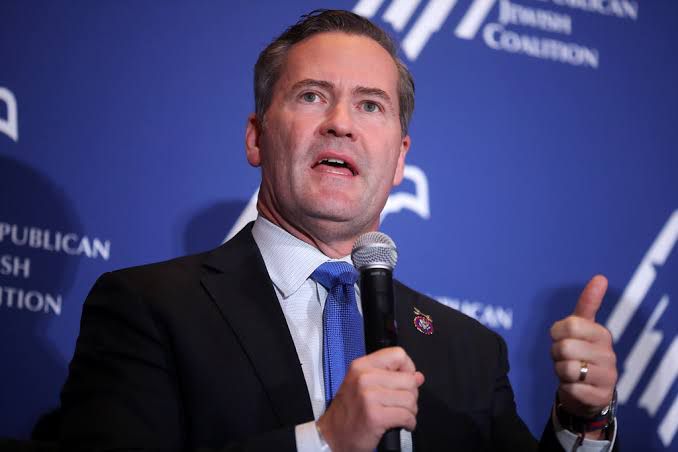
President Trump has removed his national security adviser, Michael Waltz, along with a senior foreign policy official, marking a significant shake-up in his administration’s national security leadership during his second term, according to individuals familiar with the decision.
Waltz’s dismissal follows a serious error involving a group chat on Signal—a secure messaging app—where he inadvertently added a journalist while coordinating discussions about a classified military mission in Yemen. The blunder heightened concerns about his decision-making within the White House.
Long before this incident, several of Trump’s advisers had raised concerns about Waltz’s hawkish views, which clashed with the president’s non-interventionist “America First” strategy. Trump has consistently expressed skepticism about prolonged foreign entanglements and shown interest in engaging diplomatically with nations such as Iran and Russia.
Waltz’s deputy, Alex Wong, is also being ousted. Wong, a seasoned Republican with experience in North Korea diplomacy during Trump’s first term, is known for his more moderate approach. Their exits come as the administration prepares for a pivotal foreign tour, including stops in Saudi Arabia and other Middle Eastern capitals.
No successor has been officially named, but the choice is expected to influence the direction of Trump’s foreign policy, especially as internal disagreements persist over how to handle China, Iran, and Russia.
Waltz was recently seen accompanying Trump in Rome at Pope Francis’s funeral and was present during the president’s meeting with Ukrainian leader Volodymyr Zelensky at the Vatican. Despite the growing rumors of his removal, Waltz appeared on Fox News Thursday morning—possibly unaware of the decision at that time.
Known for advocating strong measures against adversaries, Waltz pushed for tough sanctions on Russia unless it agreed to a cease-fire in Ukraine. Trump, however, has mostly opted for symbolic moves and rhetorical pressure rather than imposing major penalties.
External Trump allies, including right-wing activist Laura Loomer, have also criticized Waltz. Loomer reportedly influenced the president’s decision to remove several members of the National Security Council over loyalty concerns.
During his second term, Trump has been reluctant to fire top-level officials, hoping to avoid the kind of turmoil that characterized much of his first administration, where four national security advisers came and went. Michael Flynn, the first, was let go just weeks into the job after misleading Vice President Pence about conversations with the Russian ambassador.
Private discussions about replacing Waltz have been ongoing, particularly after the group chat mishap. Names under consideration include Steve Witkoff, a close Trump associate and real estate developer who previously served as a Middle East envoy and has since been involved in key diplomatic efforts, including talks with Vladimir Putin and the Iran nuclear issue.
Other potential candidates include Senator Marco Rubio, who some suggest could take on the dual role of Secretary of State and national security adviser—similar to the position held by Henry Kissinger under President Nixon—and Rubio’s deputy, Chris Landau. Although Trump had publicly expressed confidence in Waltz recently, internal deliberations about his replacement had already begun.
With a limited circle of individuals who both share Trump’s ideology and have his trust, the choice of Waltz’s successor is expected to be pivotal.